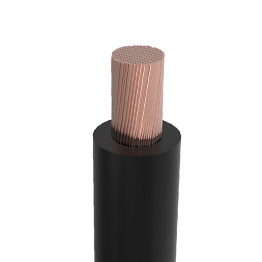
Battery cable is an essential component in many electrical systems, designed to transmit power between a battery and the connected equipment. Composed of highly conductive wires (typically copper) encased in durable insulation, battery cable is widely used in automotive, marine, and industrial applications where reliable power transfer is critical.
Understanding the advantages, disadvantages, and applications of battery cable can help you decide if it’s the right solution for your project.
What is Battery Cable?
Battery cable is a heavy-duty cable that transmits electrical power from batteries to various devices or systems. It is commonly found in vehicles, machinery, and renewable energy setups. The cable’s construction typically consists of copper conductors for high conductivity and a protective insulation layer, such as PVC or rubber, to resist heat, abrasion, and chemicals.
Advantages of Battery Cable
High Conductivity
Battery cables, especially those made with copper, offer excellent electrical conductivity, ensuring efficient power transfer. This reduces energy loss and improves overall system performance.
Durability
The insulation on battery cables is designed to withstand harsh environments, including exposure to extreme temperatures, oils, and chemicals. This makes them suitable for demanding applications like automotive engines and industrial machinery.
Flexibility
Battery cables are available in various sizes and types, offering flexibility for different setups. Fine-stranded wires inside the cable provide added flexibility, making them easy to route in tight spaces.
Versatility
Battery cables are used in various applications, from powering vehicles and boats to connecting renewable energy systems. Their adaptability makes them a go-to choice for many industries.
Resistance to Wear
With robust insulation, battery cables resist wear and tear, ensuring long-term reliability. This is especially important in mobile applications, where cables are subject to constant vibration and movement.
Disadvantages of Battery Cable
Cost
High-quality battery cables, particularly those with copper conductors and premium insulation, can be more expensive than other types of wiring. This cost may be prohibitive for budget-conscious projects.
Weight
Copper conductors are heavier than other materials, which can be a drawback in applications where weight is a concern, such as in aerospace or lightweight vehicles.
Limited Distance
Battery cables are effective over short distances, but their efficiency drops significantly over long runs due to voltage drop. For long-distance power transmission, thicker cables or alternative solutions may be required.
Practical Applications of Battery Cable
Automotive Industry
Battery cables are critical in vehicles for connecting batteries to starters, alternators, and electrical systems. Their durability and conductivity ensure reliable performance in harsh engine environments.
Marine Applications
In boats and yachts, battery cables connect batteries to propulsion systems, navigation equipment, and onboard electronics. Their resistance to corrosion and flexibility makes them ideal for marine environments.
Renewable Energy
Battery cables are used in solar and wind energy systems to connect batteries to inverters and other components. Their efficiency in transferring power ensures the system operates smoothly.
Industrial Machinery
Battery cables power forklifts, backup generators, and other heavy-duty equipment. Their ability to handle high current loads makes them indispensable in industrial settings.
Conclusion
Battery cable is a versatile and durable solution for transmitting power in a variety of applications. Its high conductivity, flexibility, and resistance to harsh environments make it an excellent choice for automotive, marine, and industrial uses. However, considerations like cost, weight, and distance limitations should be factored into the decision-making process.
By understanding the pros and cons of battery cable, you can make informed decisions to ensure your system operates efficiently and reliably, whether you’re powering a vehicle, boat, or renewable energy setup.

